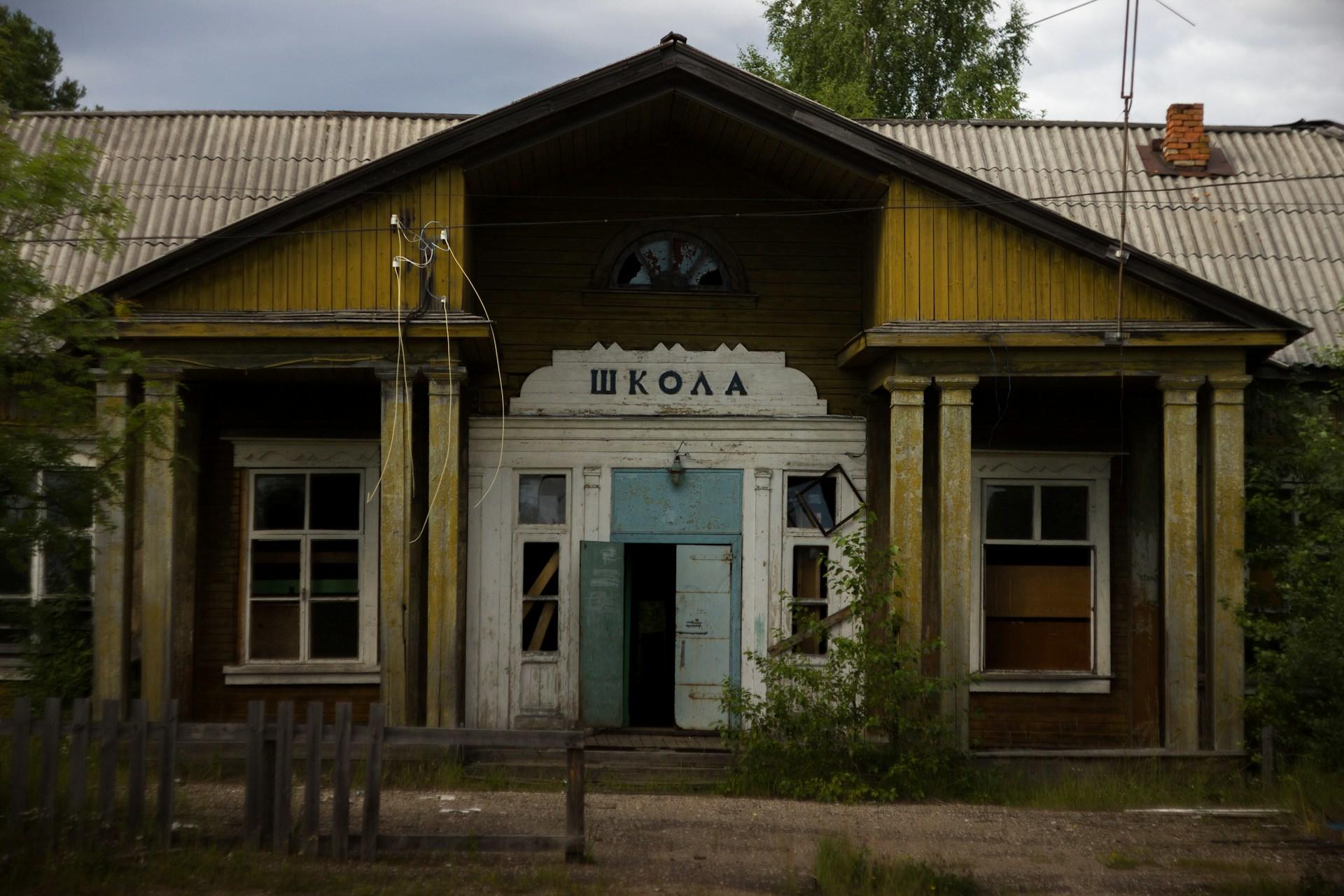“Listen more, talk less.” - Russian Proverb
When Russia hosted the World Cup in 2018, a lot of people discovered new aspects of Russian culture, including music. Many were shocked to learn that they know the most famous Russian songs. We wager that, by the time you've finished this article, you too will have found a song or two that you know.
The music from Russia is as expansive as the country itself. Russia has an impressive orchestral and classical music repertoire, which includes Tchaikovsky, Stravinsky, and Rachmaninoff, among others. This culture produces plenty of contemporary music, too. We'd love to gush about all of Russia's music but, in this article, we focus on these classic Russian songs:
| Russian song title | Translation | Backstory |
|---|---|---|
| Kalinka | little berry | A metaphor of young women's beauty A traditional love song. |
| Katiusha | Little Catherine | A military song. A woman writes a prayer for her lover. |
| Trololo | N/A | A dispute between the songwriter, a lyricist, and the vocalist. |
| Podmoskovnie Vetchera | Moscow Nights | Originally 'Leningrad Nights'; changed to Moscow at the Ministry of Culture's request. |
| Dorogoï Dlinnoyou | On the Long Road | Known in the West as 'Those Were the Days'. |
| Kombat | Combat | Released during the Soviet Republic's fall, it describes the taste of battles. |
| Proshchaniye slavyanki | Farewell of Slavianka | To honour Slavic women who went to war with their men. |
| Rumka Vodki na Stole | Glass of Vodka on the Table | An anthem cursing Soviet repression. |
| Ostrov Nevezeniya | The Island of Misfortune | Forecasts the singer's bad luck to come. |
| Korobeiniki | Peddlers | Basesd on a Nikolay Nekrasov poem of the same name. |
| Polyushka Pole | Song of the Plains | Part of the 1934 symphony 'A Poem about a Komsomol Soldier' |
| Ey, Ukhnem! | Yo, heave-ho! | Barge-haulers on the Volga always sang this song. |
| Alyosha | N/A | A song about the Bulgarian statue of the same name. |
| Oi Moroz, Moroz | Oh, Frost, Frost | A popular drinking song. |
| Beriozka | The Birch Tree | A tree that symbolises beauty and light in Russian culture. |

Kalinka - Little Berry
The Russian language uses the Cyrillic alphabet. For better understanding, we use the Latin alphabet equivalents for these song titles. Share your thoughts in the comments: should we also include the titles in Cyrillic?
If you know much about Russian popular culture, you’ll have probably have heard the song Kalinka at least once in your life. If you've ever played Tetris, you've definitely heard it, at least, its instrumental version. You might have even heard one of its many translations.
Kalinka means 'little berry', but it's also the diminutive form of the name Kalina. This song is a metaphor for women’s natural beauty. Ivan Petrovich Larionov composed it in 1860 which gave it lots of time to become a folk classic. The Cossack version of the song has a militaristic feel.

Katyusha - Little Catherine
Mikhail Isakovsky and Matvey Blanter composed this song in 1938. It tells the story of a young girl writing a prayer for her lover who’s fighting on the front lines. It’s a rousing tune to lift the spirits of the Russian people, especially during the Second World War. Katyusha belongs in the Red Army Choir’s repertoire, thanks to its military themes.
Trololo
Of all the famous Russian songs on our list, this one has the most interesting backstory. It meant to be a genuine song, complete with lyrics. It even had a working title: I Am Very Glad, as I'm Finally Returning Back Home. However, anyone listening to it will soon hear that it's just a series of vocalisations.
Accounts vary on how this came to be, but the theme running through them all was disagreement. The songwriter insisted on lyrics' importance. The lyricists and the singer, Eduard Khil, maintained he needed none. For spite, he performed the song as we know it - without words.
Well, I don't need your verses at all, I'll manage without them.
Mikhail Ostrovsky, son of lyricist Arkady Ostrovsky
All this happened in 1976, but the song didn't hit the big time until 2010. Today it's the Russian song equivalent of a Rickroll. Thanks to this newfound popularity, Eduard Khil found his place among the most famous Russian people.
Podmoskovnie vetchera - The Moscow Nights
This song is as famous in Russia as TV themes are in Australia. In fact, it became the theme song for Radio Moscow, and welcomed Mikhail Gorbachev to the White House (in the United States) in 1989.. Mikhail Matusovsky composed Podmoskovnie vetchera in 1955.
We need to back up for a moment, to the year of the song's release. The Minister of Education at the time insisted on a title change, as it was originally about Leningrad, rather than Moscow. Beside that minor glitch, this song found worldwide fame. It's played in France and China, and sometimes features on the best Russian TV shows.
Dorogoï dlinnoyou - The Long Road
We know this song as Those Were the Days, but it is a Russian romantic folk song. French, Spanish, German, Italian, Persian, and Hungarian translations exist; Paul McCartney and Dalida covered it, too.
This 1920s Soviet composition grew popular in Western Europe in the 1960s, particularly in the UK and France. The Muscovite version, with dancers, is the most popular version. This is one of the most-recorded Russian songs of all time, with over 40 different versions.
Kombat
Composer Igor Matvienko wrote Kombat in 1996 and, with it, became famous (with his group Lyube). The lyrics speak for themselves: “bullets, vodka, cigarettes, shoot or you die!”.
Like a lot of other songs in Russian, it focuses on the idea of victory, defeat, and war. It's a melancholy tune that smacks of fatalism and reflection, the kind that was typical during the late Soviet Union era.
Proshchaniye slavyanki - Farewell of Slavianka
Vasily Agapkin wrote this patriotic march about the First Balkan War (1912-1913). It describes Slavic women saying goodbye to their husbands and partners as those men head off to fight. Two versions of the song exist, one from 1912 and another from 1997. Care to guess which version this is?
For many years, famous Russian composers advocated for this song’s use as the Russian National Anthem. It is now an unofficial part of the Red Army Choir’s repertoire. The national anthem of Russia is the melody of the Soviet anthem but with new lyrics and replaced “The Patriotic Song” in 2000.

Rumka vodki na stole - Glass of Vodka on the Table
This song is as emblematic as it is cliché: isn’t vodka an essential part of Russian culture? The song describes these traditions perfectly. Grigory Leps wrote and performed it, making it a success in Russia, especially at the end of the Soviet era.
Can a glass of vodka fix everything? No, but it might make a difference - in some cases, at least. This pessimistic song has its base in a common Russian proverb. That bon mot states that repression can affect people from all walks of life.
Alyosha
Eduard Kolmanovsky composed Alyosha in 1966, as a tribute to the Aloysha Monument in Plovdiv, Bulgaria. The monument honours the Soviet soldiers who died during the occupation of Bulgaria during the Second World War.
Symbolism is never far away in Russian culture. The song is particularly popular in Bulgaria and Russia, and the two countries often exchange performances of the song. Note: don't conflate the Ukranian singer, Alyosha (Eurovision 2010) with this meaningful tune!
Ostrov nevezeniya - The Island of Misfortune
Andrei Mironov is one of the most famous actors in Russia. The Diamond Arm (1978) was one of the most watched films in Russia, and Ostrov nevezeniya (The Island of Misfortune) is its soundtrack's most popular song.
Despite its foreboding title, this track is upbeat and just a touch hilarious. It doesn't bring the depth of meaning that other, more traditional songs do, even though it's a fun tune to listen to.

Korobeiniki - Peddlers
Modern Russia is a far cry from what life was like there, before the Revolution. Back then, people would strap trays around their necks, upon which they displayed their wares. This 19th Century folk song describes one such peddler, who invites a maiden to take something from his tray. In exchange, he should receive a kiss.
Unfortunately for our peddler - and the maiden, the story ends in tragedy. He intended to propose marriage the very next day, but he's robbed and killed. Such was life, in those times. The original Nikolay Nekrasov poem describes it well, as do his other works.
Polyushka pole - Song of the Plains
In 1934, Lev Knipper composed an entire symphony about defending one's homeland against enemies. This song takes the voice of the young recruit, on his first time away from home. Listening to its lively, upbeat tempo, you can fairly imagine the eager bounce in each step he takes.
This song's lyrics communicate the times well. Their horses are fast, and work in the fields progresses well. Those words clash with all the military hardware on display in the video. Isn't it good that we have English translations for the lyrics? Otherwise, we would get the wrong idea from this song.
Ey, ukhnem! - Yo, Heave-ho!
If you know any song on this list, it's this one. We know it as the Song of the Volga Boatman, but how many of us ever thought those boatmen were real? Now, we know that Volga River barge-haulers existed, and this was the melody they used to heave in unison. That must have been rough work!
Oi moroz, moroz - Oh Frost, Frost
Slavic humour is often wry, and no Russian song proves that better than this one. Imagine a man astride his horse, pleading with winter not to freeze him or his mount. He must get home before his lovely wife's jealousy gets the best of her.
In fact, this song has many layers. It sticks its tongue out at rough Russian winters, while pondering the nature of love and human relationships. The very bottom layer is a sense of loneliness that underpins everything.

Beriozka - The Birch Tree
Russian traditional culture dictates that birch trees are symbols of light and beauty. They stand for spring, and all the goodness of nature. Believing that these trees housed protective spirits, Russians of old would plant them around their homes. Thus, it's no surprise that such an important icon would have a song of its own.
We'll leave you to guess how these dancers glide so stilly and effortlessly. We close our list of famous Russian songs with one you likely won't hear on the radio, but whose dance is magical to behold.
Summarise with AI:
















Back when I was a teen 2 songs stood out to me from Radio Moscow, Do the Russins want a war sung in english and Lollypop, Lollypop sung in Russian. Early ’60s